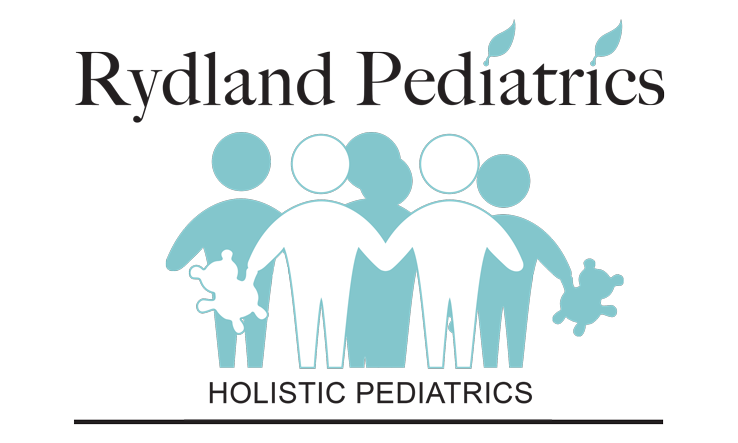A Pediatrician’s Perspective
- July 14, 2014
- Breastfeeding

Breastfeeding: Dr. Eric Rydland M.D., Medical Director, The Rydland Pediatric Wellness Center
The Rydland Pediatric Wellness Center has always supported and encouraged breastfeeding. Breastfeeding is the most important means of nourishing your baby with what he or she needs for proper growth and development. It is second in importance only to the healthy habits, nutrition, and supplements taken by his/her mother and father prior to and throughout the pregnancy. Unfortunately, breastfeeding is not always naturally learned. It is important for you to being preparations now.
The most important steps you need to take now are to learn as much as possible about breastfeeding and to make sure the baby’s mother had had a thorough breast examination by a professional who has expertise in this area. You need to alert your physician to any questions or potential problems.
The educational process is extremely important. Many couples are not aware of important aspects of breastfeeding such as timing of feedings, positioning, etc. Many prepared childbirth classes have sessions regarding breastfeeding. In addition, we would recommend you avail yourself of pro-breastfeeding reading materials such as The Womanly Art of Breastfeeding, available through La Leche League. Whenever possible, both mother and father should read this educational material. In addition, we strongly recommend you attend meetings of your local La Leche League group. This will not only inform you, but you can develop a social network of parents such as yourself who are interested in breastfeeding.
The ultimate best person to perform your breast examination is the lactation consultant, but your obstetrician or midwife can also carry this out. It is of paramount importance, though, that you inform your baby’s prospective pediatrician of any anticipated difficulties following this examination. Some findings your baby’s physician should know include a previous history of breast surgery, “tubular breasts”, breasts significantly different in size from each other or (“truly”) inverted nipples. Please let us know in advance about any such conditions so we can map out a plan to best help you.
Once your baby is born you should take the earliest possible opportunity to begin breastfeeding. Some interesting new research shows that many babies placed on the mother’s abdomen will actually begin to “creep” toward their mother’s breast right after delivery if the mother hadn’t been pretreated with narcotics or other depressant medications. Remember though, that your baby has also been through labor and may be too tired to nurse. Most mothers have to wait to nurse their babies if they have had a Cesarean delivery until they are together in the postpartum room unless prearranged otherwise.
Thereafter, we recommend that you attempt nursing your baby on his/her cues (on demand), but at least every two to three hours. Again, babies who go through any labor may be fatigued and not feel up to nursing for the first day or so. This should cause no major concern as long as trained nursing staff is closely observing him/her for important medical conditions such as dehydration and hypoglycemia. There is also evidence that frequent nursing may decrease the possibility of jaundice.
Upon going home it is advisable to continue demand feedings. Breastfeeding babies must nurse at least eight to ten times daily until feeding patterns, milk supply and weight gain have been strongly established. This means that your baby must feed at least every three hours from the beginning of one feeding to the next. Once the pattern has been well established we often can relax these requirements. This is best determined at either the first or second visit to our Wellness Center.
We recommend waiting to start bottle feedings of any type (preferably mother’s milk in the bottle) for at least three weeks, enabling lactation to be well established. Artificial feeding (infant formula), a distant “second best”, will be recommended if conditions dictate or at your request. Solid foods are typically introduced at six months unless, of course, your baby needs them before this. We will also assist you in this decision.
We strongly recommend you continue nursing your baby for at least twelve months, and actually recommend that your child wean from the breast when he or she is ready. Nursing children into the toddler period has many established benefits for both the child and for the mother. Mothers should continue taking a prenatal vitamin (preferably natural) for the length of time they are nursing their baby.
Dr. Eric N. Rydland, graduated from the University of Miami undergraduate and School of Medicine in 1974 and 1978 respectively and completed his pediatric training at the University of Miami Affiliated Hospitals in 1981. He is pediatric board certified by the American Board of Pediatrics. During his nearly 30 years of clinical experience Dr. Rydland has researched and studied the holistic field and alternative treatments. Integrating these holistic treatments with traditional medical care based upon the wisdom only God can give, has given thousands of patients optimal health benefits. This has been achieved through work with many published authors in the alternative field, his experience, and devine wisdom. In addition to the kidsWellness products our site features other products he uses in his clinical practice. Dr. Rydland is a frequent guest on radio and television, speaker at medical seminars and public conferences, and a published author. He is the Founder and Developer of kidsWellnessTM Incorporated (October 1999)
Upcoming Events
- No Events
WHAT OUR PATIENTS ARE SAYING
Testimonial 1
How I wish I weren't writing this and that by some feat of providence we could have brought you with us to Texas – I don’t know if I’ll ever have the confidence and esteem for another pediatrician that I felt when consulting with you about Frank’s health. Thank you so much for being there when we needed you! Again thank you for everything!
Testimonial 2
Sheri, Hollywood
Sheri, Hollywood
Testimonial 3
Elizabeth, Miami Springs
Elizabeth, Miami Springs


